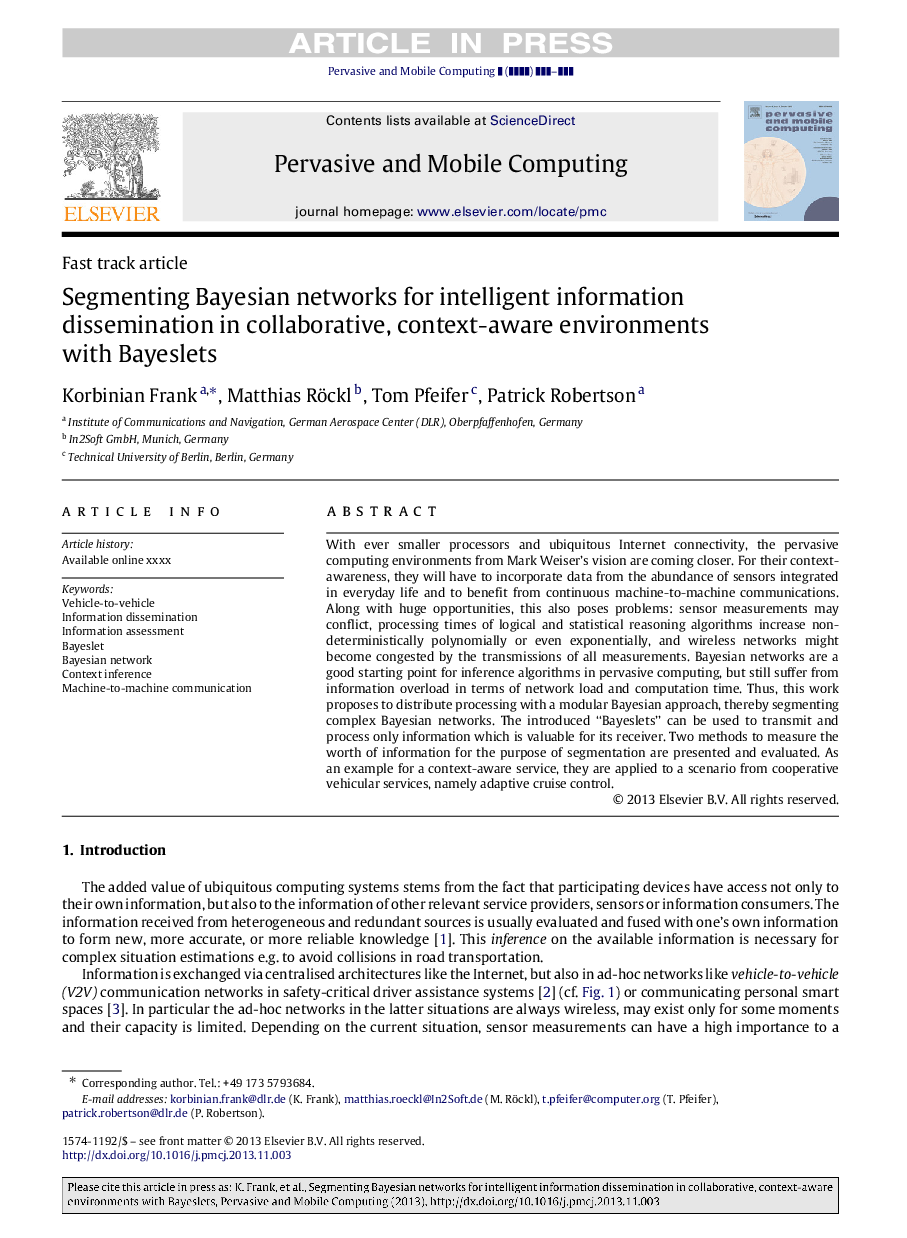| Article ID | Journal | Published Year | Pages | File Type |
|---|---|---|---|---|
| 6888851 | Pervasive and Mobile Computing | 2014 | 18 Pages |
Abstract
With ever smaller processors and ubiquitous Internet connectivity, the pervasive computing environments from Mark Weiser's vision are coming closer. For their context-awareness, they will have to incorporate data from the abundance of sensors integrated in everyday life and to benefit from continuous machine-to-machine communications. Along with huge opportunities, this also poses problems: sensor measurements may conflict, processing times of logical and statistical reasoning algorithms increase non-deterministically polynomially or even exponentially, and wireless networks might become congested by the transmissions of all measurements. Bayesian networks are a good starting point for inference algorithms in pervasive computing, but still suffer from information overload in terms of network load and computation time. Thus, this work proposes to distribute processing with a modular Bayesian approach, thereby segmenting complex Bayesian networks. The introduced “Bayeslets” can be used to transmit and process only information which is valuable for its receiver. Two methods to measure the worth of information for the purpose of segmentation are presented and evaluated. As an example for a context-aware service, they are applied to a scenario from cooperative vehicular services, namely adaptive cruise control.
Keywords
Related Topics
Physical Sciences and Engineering
Computer Science
Computer Networks and Communications
Authors
Korbinian Frank, Matthias Röckl, Tom Pfeifer, Patrick Robertson,
